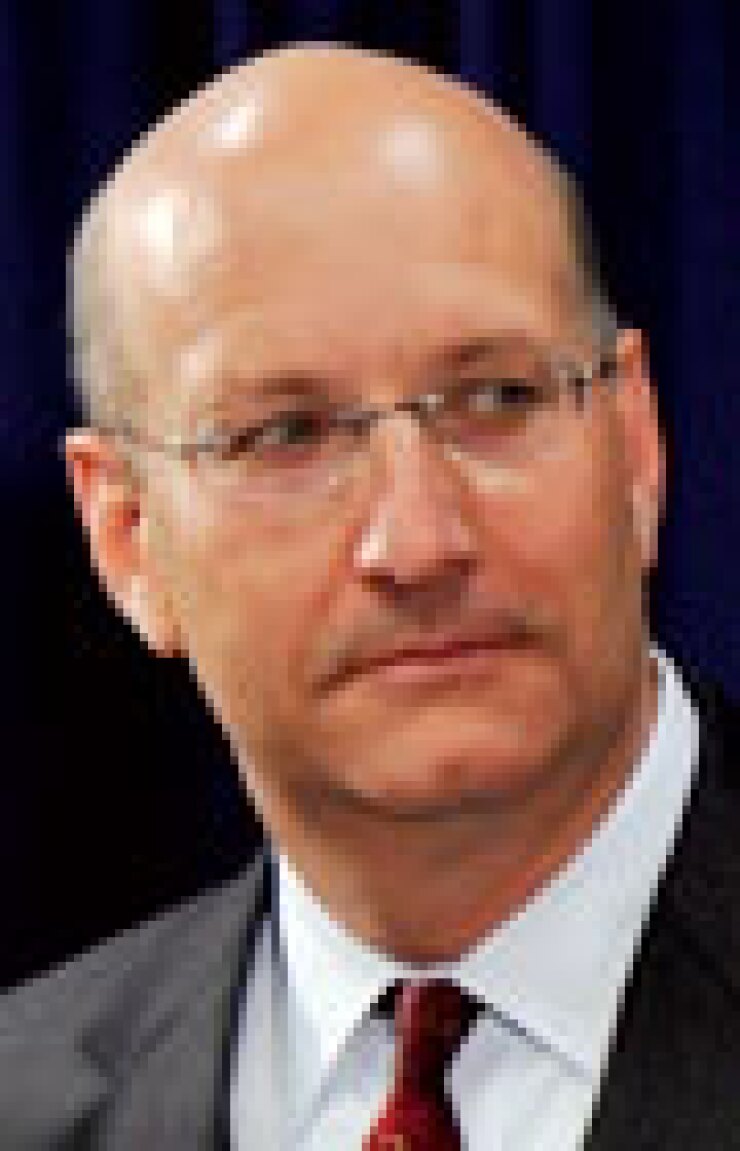
New York Gov. David Paterson's choice to run the Metropolitan Transportation Authority said at a hearing yesterday that he would work with the Legislature to find a solution to the cash-strapped agency's needs but didn't offer proposals of his own. The state Senate will consider the nomination of Jay Walder as chairman and chief operating officer at a full confirmation hearing tomorrow.
"We need to work to place the MTA on a long-term, secure financial footing, not for a couple of years but over a long term," Walder said.
The bailout package for the agency that passed in May created revenue streams against which the MTA could sell about $6 billion of bonds to meet the first two years of its next five-year capital program.
"The onus right now is to be able to show that those resources are being used effectively and productively and in a way that benefits the public," he said.
The MTA's draft $29 billion plan has a nearly $10 billion funding gap and Walder said that eventually, "we will need to move past the two years to have a long-term solution for the MTA."
The primary source of new revenue in the bailout was a new payroll tax, called a "mobility tax," on employers in the 12 counties served by the MTA. The authority has not established the payroll tax as a standalone credit, though it did sell $600 million of revenue anticipation notes against the tax in July.
Senate Finance Committee chairman Carl Kruger, D-Brooklyn, said at the hearing and told reporters afterward yesterday that he wants the mobility tax to sunset.
"My goal is to eventually come back and say, 'We don't need the payroll tax anymore,' " he said. "We'll hopefully be able to come back to it at some point and say, 'You know what, MTA, you're not as in bad of shape as you claimed to be, the economy's better, you found more money, you're operating more efficiently, you've been able to negotiate some better contracts, you don't need all the money that you're getting, and let's talk about the payroll tax.' "
Asked what would become of bonds issued against the payroll tax, Kruger said a solution could be found when the time came.
"We can always recall those bonds and we can retire them," he said. "There are things that we can do financially to supplement or augment the payroll tax."
Among the places Kruger said the authority should be looking to find money is in its real estate holdings.
"The MTA should be liquidating the assets they don't need," Kruger said. "They shouldn't be in the real estate business or in any other business but providing transportation for the riding public."
Walder worked on the MTA's first capital plan in the 1980s and served as its executive director and chief financial officer during a 12-year tenure at the authority. He left to teach public policy at Harvard University.
From 2000 to 2006 he was the managing director of finance and planning for Transport for London, an agency that oversees and manages the city's transportation services. He is currently a partner at McKinsey & Co. specializing in large-scale capital investments and public-private partnerships.
Though Walder said the P3 model has been used effectively for the construction of new transportation lines, he said it didn't have an application for the MTA's subway system.
"I don't believe public-private partnerships will make any sense for the New York subway system at all," he said. "I have not seen a model of using public-private partnerships in an existing metro system or subway system used effectively anywhere in the world."
Walder said Transport for London opposed a P3 concession that was awarded to the consortium Metronet to upgrade its system. The company declared bankruptcy four years later, and ultimately cost taxpayers an additional $4 billion, he said.





